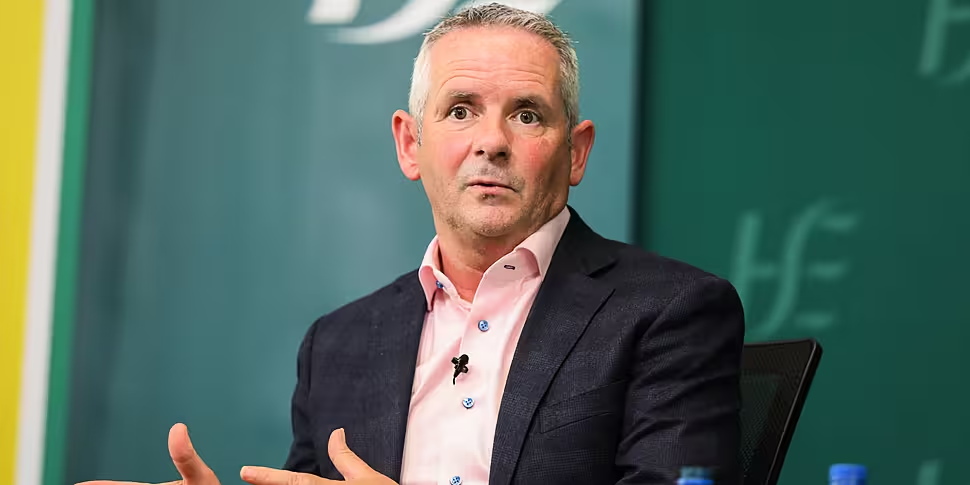Ireland will begin vaccinating children against COVID as soon as the HSE gets the green light from NIAC.
The National Immunisation Advisory Group (NIAC) has now been considering whether to recommend child vaccination for a number of weeks.
The group is examining evidence from countries where child vaccination is already underway and the HSE has said all options and scenarios are under consideration.
This morning, HSE chief Paul Reid told Newstalk that the health service was ready to put the advice into action as soon as NIAC reaches a decision.
“First of all, we are waiting for recommendations from NIAC in terms of recommendations for 12 to 15-year-olds and how and when they should be administered," he said.
“Once we receive that advice, we will immediately put that into action – whether that is before schools return or post-schools return – we are looking at all options and from a HSE perspective, we will execute that once the advice comes.”
Vaccines
He said the infrastructure put in place for the COVID-19 vaccine rollout could be used to vaccinated children against other ailments.
“We are looking at our whole vaccination programme because, even beyond the COVID vaccines, there is a whole range of vaccines we want to administer during summer and post-summer as well in terms of younger people,” he said.
“So, we are looking at all options for the vaccination of younger people - including vaccination centres, pharmacies, schools programmes and GPs.
“We have a really good model running now and we are looking at all options to continue that down through the ages.”
Children
While children can pick up COVID-19, very few develop severe symptoms.
Nearly 34,000 COVID cases were detected in children between March and April this year; however, just 18 were admitted to ICU and all were discharged.
The World Health Organisation (WHO) has warned that there is ‘no justification’ for vaccinating children in richer countries while poorer struggle to access supply.
A bumpy journey for the next few weeks in terms of #Delta. Thankfully community positivity from testing reduced yesterday from 8.4% to 6.7%. Now 77% of people partially vaccinated and almost 64% fully. A white knucle ride of vaccines versus Delta but let's get there. @HSELive
— Paul Reid (@paulreiddublin) July 18, 2021
Mr Reid also said Ireland’s rising case count was a “significant cause of concern” and said officials will be watching closely in the coming weeks to see if there is any surge in hospital figures.
Yesterday, 1,377 new infections were announced - the highest daily figure since the end of January.
“We have always known there is a lag time between cases and hospitalisations and particularly ICU,” said Mr Reid.
“It is usually about a two-week lag time so what we are watching very closely now, as the cases rise in the coming days, what that may look like in the coming weeks,.
“Thankfully, we are coming off a much lower base in terms of our hospitalisations - the numbers this morning are 86 in hospital and 22 in ICU - but notwithstanding that, if cases continue to rise that will be what we are watching very closely; that our hospitalisations would increase at a significant pace very quickly.”
Surge capacity
The HSE chief said Ireland’s hospitals are “extremely busy” at the moment as medics address the backlog in non-COVID care.
He said surge capacity protocols have not been put in place as yet.
“Increasing our capacity to deal with COVID is something we don’t want to do because we know there is a significant backlog of non-COVID care we want to keep addressing,” he said.
“We are not at surge in our hospitals at this point in time but it is one we are looking out in two weeks’ time or three weeks’ time what maybe the impact will be.
“So, the next two, three or four weeks are really important for us. We will get a better sense of what the impacts are from current case loads and increasing case loads in the coming days and weeks.”
Call to arms
He issued a “really strong call to arms” encouraging young people to “mind themselves and protect themselves in the coming days and weeks.”
“They are the new vulnerable groups because they aren’t vaccinated,” he said.
“Thankfully 25 to 29s now are fully opened and it is our intention, by the end of this month, that we would further open the portal for mRNA vaccines for the age groups 18 to 24.
“This coming Monday, it does open for 18 to 24s to register and opt-in for the AstraZeneca vaccine in a vaccine centre.
“So, we are increasingly moving down through the ages and there are increasingly more options through pharmacies and vaccine centres and moving down through over the next few weeks.”
Reporting from Stephen Murphy









